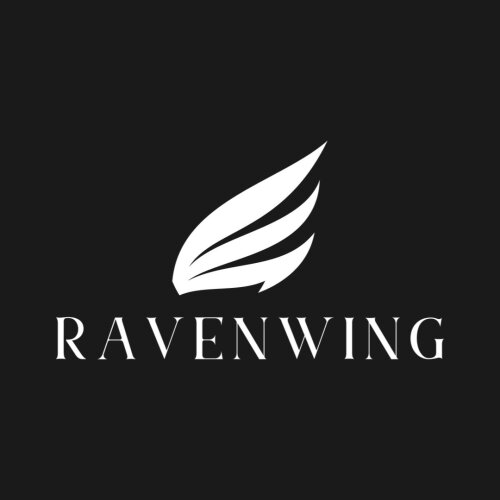Best Water Law Lawyers in Bang Na
Share your needs with us, get contacted by law firms.
Free. Takes 2 min.
List of the best lawyers in Bang Na, Thailand
About Water Law in Bang Na, Thailand
Water Law in Bang Na, a fast-developing district of Bangkok, refers to the legal framework governing the use, management, and protection of water resources. This body of law covers issues such as water rights, pollution control, drainage, irrigation, flood prevention, water supply, and disputes over access or contamination. Bang Na's urban growth and proximity to major waterways make water management a critical concern, regulated by national legislation, Bangkok Metropolitan Administration (BMA) rules, and local enforcement to ensure sustainable use and public safety.
Why You May Need a Lawyer
Legal assistance in Water Law becomes necessary in various situations, including:
- Disputes over water use or access on agricultural or residential land
- Issues with water pollution affecting property, health, or business operations
- Compliance with regulations for water use, waste disposal, or construction near rivers and canals
- Flood damage claims involving neighbors, authorities, or insurance
- Negotiation or drafting of water-related agreements with other landowners or local authorities
- Defense against allegations of unlawful water usage or pollution
- Seeking permits for water extraction or construction that impacts water resources
A qualified Water Law lawyer can help protect your rights, ensure compliance, resolve disputes, and represent you before administrative bodies or courts.
Local Laws Overview
Key aspects of Water Law relevant to Bang Na include:
- Water Resources Act B.E. 2561 (2018): Establishes the national framework for water resource management, defining public and private water rights, usage permits, and pollution controls.
- Bangkok Metropolitan Administration (BMA) Regulations: Regulates drainage, flood prevention, waste discharge, and construction near water bodies within Bangkok, including Bang Na.
- Land and Building Laws: Specify rules on building near canals (khlongs) and rivers, setback requirements, and environmental impact assessments for larger projects.
- Pollution Control Act: Governs allowable limits for waste water and chemical discharge into public water sources and sets out penalties for violations.
- Irrigation and Drainage Laws: Protect canal infrastructure, prevent obstruction, and allocate usage rights in agricultural zones bordering Bang Na.
- Dispute Resolution Mechanisms: Allow for mediation, administrative complaints, and court actions for water-related grievances.
Understanding local enforcement practices and the responsibilities of governmental agencies such as the BMA, Royal Irrigation Department, and Ministry of Natural Resources and Environment is vital for compliance and successful resolution of issues.
Frequently Asked Questions
What constitutes a water law violation in Bang Na?
A violation can include unauthorized water use, illegal discharge of pollutants, unpermitted construction near waterways, or causing damage to public water infrastructure.
Who owns the water resources in Bang Na?
Under Thai law, most natural water resources such as rivers, canals, and underground aquifers are considered public property and are managed by government agencies.
Do I need a permit to extract groundwater for my business?
Yes. Any extraction of groundwater, especially for commercial purposes, requires a permit from the Department of Groundwater Resources or relevant authorities.
How do I report water pollution or illegal dumping?
Reports can be made to the Bangkok Metropolitan Administration, the Department of Pollution Control, or the local district office for investigation and enforcement.
What can I do if my property is flooded due to a neighboring development?
Consult a Water Law lawyer to evaluate your rights. You may have grounds for a legal claim or administrative complaint seeking compensation or an injunction.
Are there rules about building near canals or waterways?
Yes. Setback requirements and other regulations restrict construction within a certain distance of public waterways to prevent environmental damage and flooding.
Can a community restrict my access to a public waterway?
Access to public waterways cannot generally be restricted by private parties or communities unless it is done lawfully under government regulation or safety measures.
How are water disputes between neighbors resolved?
These disputes can often be resolved through negotiation, mediation, or, if necessary, litigation in civil court, depending on the nature and severity of the issue.
What are the penalties for illegal wastewater discharge?
Penalties under the Pollution Control Act can include fines, mandatory cleanup, or even criminal liability for severe breaches affecting public health or the environment.
Can I lose my right to use canal water if I do not use it?
Water use rights are regulated, and persistent non-use without permission or payment of fees could potentially result in loss or limitation of rights, especially for agricultural allocation.
Additional Resources
If you seek further information or legal support relating to Water Law, these resources can be helpful:
- Bangkok Metropolitan Administration (BMA) - Environment and Sanitation Department
- Department of Water Resources, Ministry of Natural Resources and Environment
- Department of Pollution Control
- Department of Groundwater Resources
- Royal Irrigation Department
- Local Bang Na District Office
- Legal Aid Centers and the Lawyers Council of Thailand
- Environmental NGOs and community legal clinics in Bangkok
Next Steps
If you need legal assistance in Water Law in Bang Na, start by identifying your specific issue, gathering relevant documentation (such as permits, land deeds, correspondence, or evidence of damages), and consulting with a qualified lawyer who specializes in Water Law or environmental law in Thailand. Early professional advice can help clarify your rights, obligations, and the best approach for resolution. You can contact local law firms, visit legal aid centers, or consult the recommendations above. Be prepared to clearly explain your situation and desired outcome to ensure efficient support.
Lawzana helps you find the best lawyers and law firms in Bang Na through a curated and pre-screened list of qualified legal professionals. Our platform offers rankings and detailed profiles of attorneys and law firms, allowing you to compare based on practice areas, including Water Law, experience, and client feedback.
Each profile includes a description of the firm's areas of practice, client reviews, team members and partners, year of establishment, spoken languages, office locations, contact information, social media presence, and any published articles or resources. Most firms on our platform speak English and are experienced in both local and international legal matters.
Get a quote from top-rated law firms in Bang Na, Thailand — quickly, securely, and without unnecessary hassle.
Disclaimer:
The information provided on this page is for general informational purposes only and does not constitute legal advice. While we strive to ensure the accuracy and relevance of the content, legal information may change over time, and interpretations of the law can vary. You should always consult with a qualified legal professional for advice specific to your situation.
We disclaim all liability for actions taken or not taken based on the content of this page. If you believe any information is incorrect or outdated, please contact us, and we will review and update it where appropriate.










